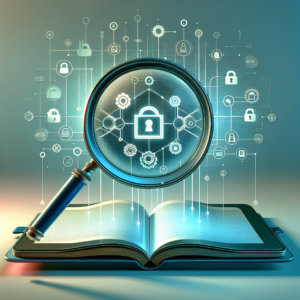IoT Efficiency: Leveraging Smart Devices for Business Operations
In today’s fast-paced digital landscape, businesses are constantly seeking innovative ways to improve efficiency and productivity. Enter the Internet of Things (IoT) — a technological marvel that has transformed how businesses operate. From smart thermostats to interconnected machinery, IoT devices are reshaping industries and unlocking new potentials. Let’s delve into how your business can leverage these smart devices to boost operational efficiency.
Table of Contents
1. Introduction to IoT in Business
2. The Benefits of IoT for Business Operations
3. Key Areas Where IoT Can Boost Efficiency
4. Implementing IoT: Best Practices
5. Conclusion
6. FAQs
Introduction to IoT in Business
The Internet of Things (IoT) refers to the network of physical objects that are embedded with sensors, software, and other technologies to connect and exchange data with other devices and systems over the internet. For businesses, this means a new era of connectivity that goes beyond human interactions — it’s about devices talking to each other and providing invaluable insights that can drive decision-making.
The Benefits of IoT for Business Operations
Why should your business consider integrating IoT devices? Here are some compelling benefits:
1. Enhanced Productivity 📈
IoT devices automate routine tasks, freeing up employees to focus on more strategic activities. For instance, smart inventory systems can automatically reorder supplies when stocks run low, ensuring that operations continue smoothly without manual intervention.

2. Improved Resource Management 🌍
By monitoring and controlling energy usage through smart grids and sensors, businesses can significantly reduce waste and cut costs. IoT can optimize HVAC systems based on occupancy and weather forecasts, leading to more efficient energy consumption.

3. Real-time Data and Analytics 📊
IoT devices generate a wealth of data that can be analyzed to gain insights into operational processes. This real-time data allows businesses to make informed decisions quickly, improving responsiveness and agility.
Key Areas Where IoT Can Boost Efficiency
Smart Manufacturing 🤖
IoT transforms manufacturing with predictive maintenance and real-time monitoring of equipment. This reduces downtime and increases the lifespan of machinery.
Logistics and Supply Chain 📦
Track shipments in real-time and optimize routes to reduce delivery times and fuel consumption. IoT devices can provide transparency in the supply chain, enhancing accountability and efficiency.
Retail and Customer Experience 🛍️
In retail, IoT can personalize customer experiences with smart shelves and beacons that track shopper preferences and behaviors, offering personalized promotions and improving customer satisfaction.
Implementing IoT: Best Practices
To effectively implement IoT in your business, consider these best practices:
Start Small and Scale 📈
Begin with a pilot project to test the waters. This allows you to understand the potential challenges and benefits before scaling up.
Ensure Security 🔒
With increased connectivity comes the risk of cyber threats. Invest in robust security measures to protect your IoT infrastructure and data.
Invest in Training 📚
Equip your workforce with the necessary skills to manage and maintain IoT devices. Training ensures that your team can leverage these tools effectively.
Conclusion
IoT is not just a buzzword—it’s a transformative technology that holds the key to unlocking unprecedented efficiency in business operations. By harnessing the power of IoT, businesses can stay ahead of the competition, optimize resources, and deliver superior customer experiences. So, are you ready to embrace the IoT revolution?
FAQs
What is IoT and how does it work in business? 🤔
IoT refers to interconnected devices that gather and exchange data. In business, IoT can automate processes, improve resource management, and provide real-time data for better decision-making.
How can IoT improve customer experience in retail? 🛒
IoT can personalize shopping experiences by tracking customer preferences, offering personalized promotions, and streamlining checkout processes with smart POS systems.
What are some challenges in implementing IoT? 🚧
Challenges include ensuring data security, managing the scale of connected devices, and integrating IoT with existing systems. Proper planning and investment in security are crucial.
Is IoT suitable for small businesses? 🏢
Absolutely! IoT solutions can be scaled to fit businesses of all sizes, offering benefits like cost savings, improved efficiency, and enhanced customer service, even for small enterprises.
What industries benefit the most from IoT? 🏭
Industries like manufacturing, logistics, healthcare, and retail are seeing significant benefits from IoT, but virtually any sector can leverage IoT for improved operations.












